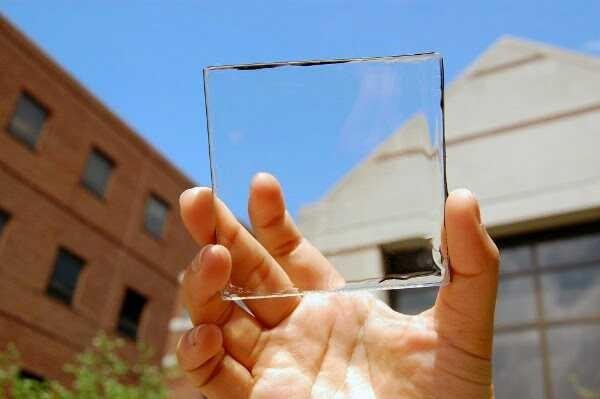Transparent Solar Cells Will Decorate Building And Mobile Phone Screens
Generally, solar cells used so far are not transparent, dark and thick. But, recently a team of researchers from Michigan State University has developed a new type of solar cell concentrator that can be placed in a window, transparent or similar to a commonly used glass. Concentrators of transparent solar cells produce solar electric energy, and we can see out the window as in general.
This newly created device is called a transparent Luminescent solar concentrator, it can be used on buildings, mobile phones and other devices that have a clear surface. What if one day your phone screen is multifunctional and without having to recharge the battery? The results of this study are published in the journal Advanced Materials Optical edition of August 2014.
#Transparent Solar Cell Concentrator
Richard Lunt from MSU College of Engineering has succeeded in creating the latest technology of transparent solar cell concentrators. This research is useful for producing energy in solar cells placed around plastic materials, and the use of luminescent is not a novelty in technology. The latter technology produces a bad product, in which energy production is inefficient and the materials used are generally colored.
The benefits of transparent solar cell concentrator development is flexibility, but it is still an early stage that has the potential for enhanced commercial or industrial applications at an affordable price. Surely this technology will open several places to spread the sun's energy in a non-intrusive way. One of them can be used on tall buildings with many windows or mobile devices that demands high aesthetic qualities such as cell phones.
 
According to the scientists, if the window installed concentrator colored solar cells certainly not interesting, no one wants to sit behind the colored glass, other than that the room looks like a colorful discotheque. Through these color barriers, scientists take the initiative to create transparent solar cell concentrators that are very similar to common window glass. The solar-producing system uses small organic molecules that scientists develop to absorb nonvisible wavelengths of sunlight.
Lunt says they can tune the material just to take ultraviolet light and infrared wavelengths. Infrared light is directed to the plastic edge where it will be converted into electrical energy through a thin strip of photovoltaic solar cells. Because the material does not absorb or emit light in the spectrum, this light actually looks very transparent in the human eye.
Currently scientists are able to produce solar cell conversion efficiencies close to 1 percent, and they want more than 5 percent efficiency if fully optimized. By comparison, the best color solar cell concentrators have an efficiency of about 7 percent, at least scientists must achieve the same value.
Interesting technology.
This is my first time hearing about transparent solar cells.
Hmm... 1% efficiency is pretty underwhelming even in solar standards. Nevertheless, it is promising that such technology even exists.
Thank you for sharing @cutkurata.